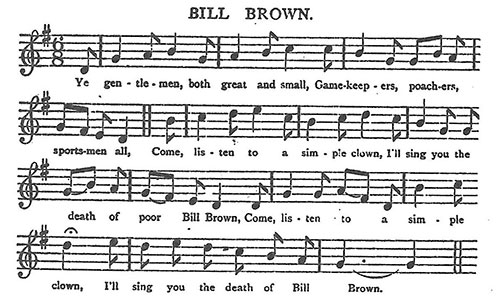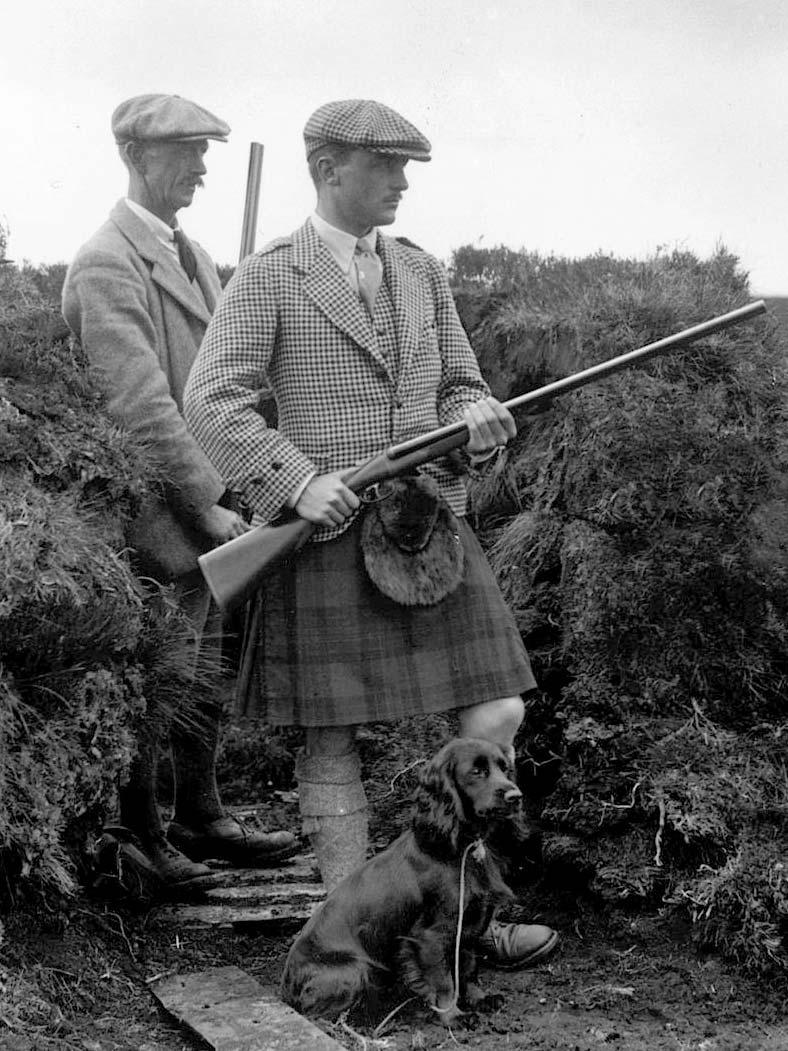Introduced by David Jones
I learned this song from a recording by A. L. Lloyd, “English Street Songs,” (Riverside, issued in 1956), an LP that I found in the $1.00 bin at Alan Block’s Sandal Shop in Greenwich Village. The LP was reissued as a CD, “Ten Thousand Miles Away” (2008). I mostly use Lloyd’s words which can be found on the website “Mainly Norfolk: English Folk and Other Good Music.” Alongside, are Peter Bellamy’s words which are just about the same. Also on this site is a video of Peter singing the song. The song has been recorded by Roy Harris, Peter Bellamy, A. L. Lloyd, and others.
This YouTube video is an audio-only version of Peter Bellamy singing the song:
And here is another fine version by Peter Coe:
Song Notes:
 A ballad of poaching, revenge, and class warfare. Based on a true incident in Yorkshire in 1769, the story is set against the background of the “Enclosure Acts” (1760-1830). The Acts, which have been called acts of theft, caused common lands to be enclosed, to the benefit of the landlords and to the detriment of the common folk. The poacher, Bill Brown, was shot by a gamekeeper for exercising what would have been his rights before the acts. The poignance of the tale is that Bill Brown, The Gamekeeper, and the story teller (the avenger), knew each other, may have been friends, yet the gamekeeper carried out the task he was paid for. He shot Bill Brown.
A ballad of poaching, revenge, and class warfare. Based on a true incident in Yorkshire in 1769, the story is set against the background of the “Enclosure Acts” (1760-1830). The Acts, which have been called acts of theft, caused common lands to be enclosed, to the benefit of the landlords and to the detriment of the common folk. The poacher, Bill Brown, was shot by a gamekeeper for exercising what would have been his rights before the acts. The poignance of the tale is that Bill Brown, The Gamekeeper, and the story teller (the avenger), knew each other, may have been friends, yet the gamekeeper carried out the task he was paid for. He shot Bill Brown.
Lyrics from website “Mainly Norfolk: English Folk and other Good Music”
| A.L. Lloyd sings The Death of Bill Brown | Peter Bellamy sings The Death of Bill Brown |
|
You gentlemen, both great and small, |
You gentlemen, both great and small, |
|
One stormy night, as you shall hear, |
One stormy night, as you shall hear, |
|
Well, we got to the woods, our sport begun, |
Well, we got to the woods and our sport begun, |
|
I know the man that shot Bill Brown, |
But I saw the man who shot Bill Brown, |
|
I dressed myself next night in time, |
So I dressed myself next night in time |
|
I ranged the woods all over, and then |
So I ranged the woods all over, and then |
|
I took my gun all in my hand, |
So I took my gun all in my hand, |
|
Now revenge, you see, my hopes has crowned. |
So revenge, you see, my hopes has crowned. |
“The Death of Bill Brown” was published in Frank Kidson’s book of “Traditional Tunes.”
David Jones is a South East Londoner, born in 1934, who has been singing the old songs for many years. Earliest remembered folksongs are the “Lincolnshire Poacher” and “The Farmers Boy,” learned at school in the mid 1940s. He has sung in the USA more than anywhere else, but has made forays back to the UK, to Australia, and to parts of Europe. He has sung solo, and with a number of groups, and, on the way, has recorded several albums of folksongs. Now, he lives in Leonia, NJ, Gateway to the Golden West, with his wife Louise, and tries to be involved as much as possible with the NYC folk music scene. He has appeared in a number of NYC theater productions to favorable reviews. His last local performance was as Alfred P. Doolittle in “My Fair Lady.”


 Thanks to the Massachusetts Cultural Council for their generous support.
Thanks to the Massachusetts Cultural Council for their generous support.
 Isaac Banner
Isaac Banner Seth Tepfer
Seth Tepfer Christa Torrens
Christa Torrens Ellie Shogren
Ellie Shogren Sharon Green
Sharon Green Dilip Sequeira
Dilip Sequeira